Dr. Yusuf Bangura, Ex-ABU, Zaria Political Scientist, Pays Tribute to Late Father
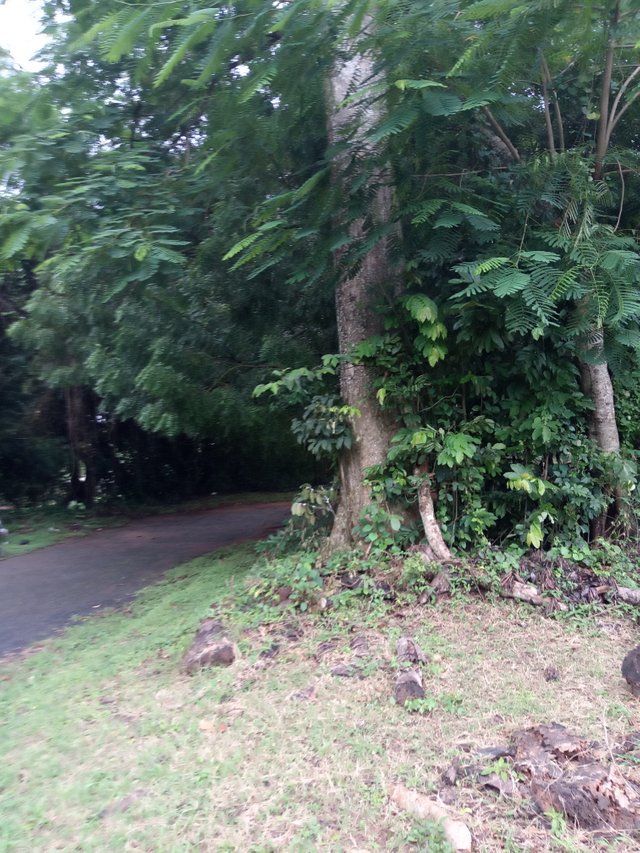
Tuesday 27 August marked the 40th anniversary of the death of our father, Almamy Momoh Bangura. He died on 27 August 1979, two weeks before I took up a one year lectureship appointment at Dalhousie University in Halifax, Canada. I had just finished watching a programme on British television on Lord Mountbatten, who was assassinated by the IRA on the same day, when one of my best friends (Abubakar Kargbo) called me to convey the news.
When the phone rang just after midnight, I knew instinctively that my father had passed away and my friend’s call was to inform me. He had suffered a massive stroke the previous year, which rendered him speechless and immobile.
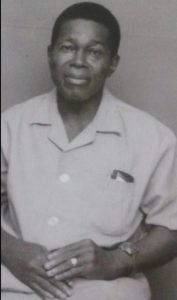
The late Pa Almamy Momoh Bangura
Pa Bangura, as he was called by relations and friends, lived a very successful life. He worked at the Sierra Leone government Department of Forestry as a forest conservationist (or forester, as the profession was called), leading teams to conserve Sierra Leone’s rich forests. His workers, some of whom became family friends, appreciated his leadership and often visited us at home in Freetown.
Through his work, he travelled to, and lived in many parts of the country, including Ferengbeya, Bo, Sumbuya, Batkanu and Freetown. My elder sister (Adama) and I were born in Bo. We moved to Freetown in 1956 (at six years of age) when our father was transferred to the capital to protect the forest in the Freetown peninsula. To facilitate his conservation work, he built a small house at Okro Hill, right in the middle of the forest, which he used as a resort or base for his patrol duties (or trek, as he referred to his missions).
I went with him on some weekends and got to know a few things about forests: the different, sometimes frightening sounds of insects, birds and other animals; the amazing variety of trees and lushness of the forest; the need to be alert all the times, as all compete for space and survival; and the sense of isolation and vulnerability one feels without the comforts and protections of city life.
Forest life is indeed a leveller - it can be a truly humbling experience. Unfortunately, much of Freetown’s forest has disappeared. I am happy that my father is not around to witness the shocking and irresponsible degradation of his beautiful forest (Photo).
Pa Bangura retired from government service in 1964 and became a businessman, trading in basic commodities, such as rice, palm oil, ground nut oil, sugar, onions, soft drinks and household goods at Campbell Street. Because his prices were competitive with those of Indian and Lebanese businessmen, many women traders at Congo Market bought their goods from him to retail at the market.
His store was the first indigenous store at the Campbell Street/Westend area of the city. He ran his business meticulously, recorded every purchase he made from suppliers, and took stock of all sales every evening, which he entered in ledgers and exercise books, before leaving the store to join the family on the top floor. Bangura Store was popularised by the poda poda bus drivers and conductors as one of the poda poda stops at the time.
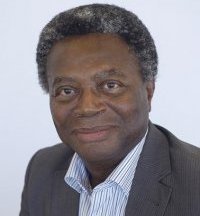
Dr Yusuf Bangura, the author
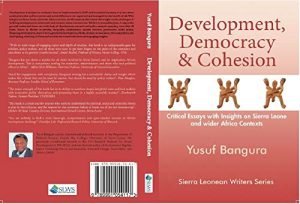
Fruit of hardwork, value he learnt from his father
Pa Bangura was a devout Muslim. He was a leading figure in the Amdala Mosque community or jamma, which had the largest congregation of Muslims in the Westend of Freetown. He contributed greatly in the expansion of the mosque and building of Amdala Mosque’s school, both of which are located at Naimbana Street.
In addition to his strong faith in Islam, he interacted with Christian church leaders and evangelicals, and read Christian literature, including pamphlets given to him by a Jehova Witness, who visited him regularly. He also worked and lived with individuals from various ethnicities. We had Krio, Themneh, Soso, Limba, Mende, Sherbro and Fula tenants in our yard at various times when we were growing up.
Pa Bangura was highly focused, disciplined, organised and result-oriented. He built three houses in Freetown - at Campbell Street, the family house; Waterloo Street, where we lived for seven years; and Oneil Street, in the Albert Academy neighbourhood. He also built a two story house in his hometown, Mange Bureh, Port Loko district.
He taught me the values of honesty, integrity, hardwork, planning and goal-setting. As a great believer in education for personal development, he never questioned any request on issues dealing with education. We learned very early that if we wanted money, which he guarded with an eagle eye and tight fist, we had to include an education angle in our request.
He had only a basic education, but used it effectively to improve himself. He wrote and spoke English fluently and understood Basic Maths. I enjoyed his grammatically flawless letters to me, including his beautiful handwriting, when I was studying in the UK in the 1970s. He bought and read newspapers every day; listened to the news on radio, including BBC World Service, attentively; and bought general subject books and pamphlets occasionally.
I picked up from him the habit of reading newspapers every day, which were always on his work desk in a corner of the sitting room that was also a prayer area. I recall my first few weeks of undergraduate studies at the London School of Economics in 1971 when one of our professors remarked that not reading a newspaper daily was like leaving your house naked. I smiled to myself as he was already talking to the converted. I first read Martin Luther King’s speech, “I Have A Dream”, and Governor Clarkson’s Prayer for Sierra Leone on my father’s desk as a teenager.
He went to great lengths to provide me with the basic foundation to compete in the world. He was, indeed, my first teacher at primary school. He read our school work and coached us in arithmetic and English, every evening before going to bed. And he found private tutors for us when we started secondary school to complement the teaching in our schools. I will end this tribute by highlighting two issues that throw light on aspects of his character and efforts to instil basic developmental and moral values in us.
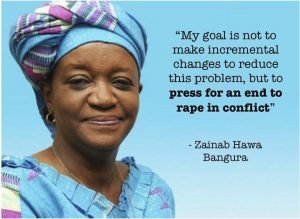
Zainab Hawa Bangura, another Sierraleonean global voice
The first was a discussion we had a week before I started work at the Services Secondary School at Juba, after my sixth form at St. Edward’s Secondary School in 1970. He narrated his work experience in the Forestry Department and how his strong savings ethic, helped him to build his houses and launch his business.
During much of his working life, the rate of inflation was very low or non-existent because Sierra Leone was part of the colonial West African Currency Board, in which the local currency, the West African Pound, was fully backed by the British Pound Sterling. This meant that member countries of the Board, which included Nigeria, Ghana and Gambia, could not print or spend money in excess of their foreign exchange or sterling holdings. This provided stability to savings even though it stifled growth.
His key point was that even though he did not earn a big salary, he saved a portion of it every month throughout his career. He told me to set a target of what I wanted to save monthly, that it did not have to be big, and that I should ensure I was consistent in saving the amount I selected. That was one of the most useful lessons I learned from him as it guided me in my career and how I organised my finances and supported my family.
The second discussion centred on moral values. A few days before I left for the UK in 1971, we had a long chat on my programme of study. He pleaded with me that I could specialise in any subject except law, because he did not want his children to become lawyers.
I was taken aback by his disdain for lawyers, since in my mind he was always in the company of lawyers, whom he hired to prosecute his debtor clients in court. He believed that lawyers were amoral - that they could defend anything even if they knew it was wrong, and that such people would end up in hell.
I was sceptical of his general indictment of the profession, but did not challenge him because I was not going to study law. However, the moral of the discussion for me was that it demonstrated his disposition as a very upright person.
Even after 40 years, I still miss his guidance in many areas of my life. May he rest in eternal peace.
Posted from my blog with SteemPress : https://intervention.ng/17191/